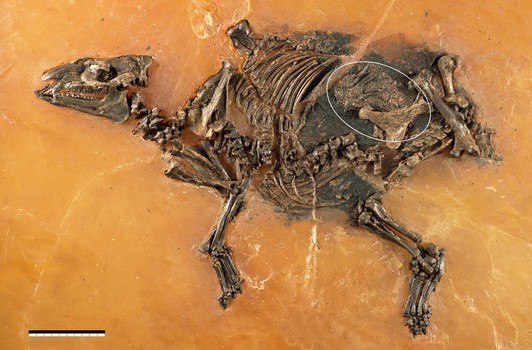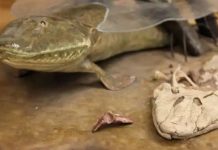The fossils of infant animals are rare but a complete fossil of a horse fetus that is almost perfectly intact with some remnants of placental soft tissues is an exceptional find. Jens Lorenz Franzen from Senckenberg Research Institute Frankfurt, Germany, and Naturhistorisches Museum Basel, Switzerland, and colleagues reported the discovery of a horse fetus that is 48 million years old in the edition of the journal PLOS ONE. The ancestor of modern horses was found in the Messel Pit near Frankfurt, Germany.
The mother and the fetus were originally found in 2000. The researchers examined the mother’s remains using scanning electronic microscopy and found a 12.5 cm fetus. All of the bones of the fetus are well-preserved with the exception of the head. The head is squashed and may have been the result of the mare’s death. This fossil is the oldest known horse ancestor fetus ever found. The fetus and the mare are Eurohippus messelensis a horse-like equoid. The animals are not true horses like modern horses but they do contain the majority of bone structures that modern horses have.
The researchers conclude that the mother died prior to giving birth from an undetermined cause that was not birth related. The fossils contained the only known soft tissues from horses from this period in time that are birth related. The uteroplacenta and one broad uterine ligament were preserved as soft tissue by the action of bacteria replacing the original tissues. This is the oldest known uterine system of a placental mammal ever found.















